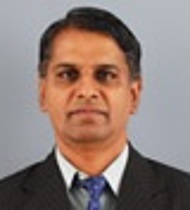The forgotten leader – Subhas Chandra Bose Part -2
The forgotten leader – Subhas Chandra Bose Part -2
Introduction
The unquestionable leader of India Subhas Chandra Bose qualifies to be in the first row of elite patriotic Indians. For his principles and to free India from British he has not hesitated to resign to an elected post of Congress President. This great leader, even was fearless when he was forced to defer with Gandhi`s ideology. He is an icon of selflessness, intelligence and patriotism.
Bose leadership qualities and Patriotism
Subhas is a born leader. In 1938 he opined that Indian National Congress (INC) should fight imperialist British and form a socialist government. In the same year, 1938 Subhas is recognized as a national leader. His leadership qualities made him to apply for the post of president of INC. His motto is self-governance and use of force against the British. At that time Gandhiji`s words were unquestionable. Gandhiji maintained a strong hold on INC. In spite of this, in 1939, Bose was elected as Congress President, defeating Gandhi’s nominee Pattabhi Sita Ramayya. Then though Bose was not keeping good health he attended the meeting on a stretcher. The patriotism of Bose is unquestionable.
Rift with Gandhi(ism)
Bose tried his level best to maintain unity in Congress, but many other leaders, prominently Gandhiji`s supporters refused to work with Bose and his ideology. Obviously he differed with Nehru, a staunch supporter of Gandhiji. Ukkirapandi Muthuramalinga Thevar also known as Pasumpon Muthuramalinga Thevar, for Tamilnadu, strongly supported Bose. However, because of the directions of Gandhiji and his clique, Bose was isolated and ultimately he tendered his resignation to the post of Congress President-ship. The letter transacted between Gandhiji and Bose are in the public domain, thus It is for the questioning individual to form an opinion in this matter.
Bose and international community
Bose understood that it is not enough to fight British in India, he invited international community`s help in pushing British to a corner. He visited London and exchanges his thoughts with the intellects of British Labour Party. Here it is interesting to note that the Labour Party was in power when India Achieved its freedom in 1947. Bose is thus a true visionary.
Escape to Germany
When India was dragged into World War without Indian`s consent, Bose organized mass protest for which he was arrested and jailed. Later, when he fasted for seven days British released him. His arrest and subsequent release made Bose to think and this paved way for his escape to Germany, via Afghanistan and the Soviet Union. Before his plan of escape, he sought loneliness to avoid British. He had grown a thick beard to avoid identification.
On 16th January,1941, he dressed himself as a ‘pathan’. He started his journey from his house in Elgin Road house in Calcutta, accompanied by his nephew Sisir Kumar Bose. They reached Gomoh Railway Station in Bihar. He traveled to Peshawar, now in Pakistan. Incidentally, on January 26th, 1941, he traveled to Russia through Afghanistan.
Bose acted as a deaf and dumb person, and let his beard grow to mimic those of the tribesmen. Bhagat Ram Talwar, a Soviet agent, was Bose’s guide. On Italian passport, he traveled to Moscow. Germany route for Bose was Moscow to Rome and from Rome to Germany. Bose was associated with the Special Bureau for India under Adam von Trott zu Solz. This association led to the broadcasting of Azad Hind Radio (meaning Freedom Indian Radio). This radio was sponsored by German. Bose delivered many lectures from this radio to the entire world. Indian voice was thus heard by the entire world by Bose.
Conclusion
Bose is a unique leader in Indian history. He struggled hard to make India free from Imperial British. In this part-2, his rift with Gandhi, escape to Germany and the launch of Azad Hind radio was detailed.
The forgotten leader – Subhas Chandra Bose Part -1
